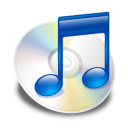If you were raised in a Baptist church, you’ve heard contemporary worship music. The likes of Hillsong, Elevation Worship, and many more owe a lot of their sound to U2’s The Edge, who turns 62 today.
While his melodies aren’t sophisticated as some of George Harrison’s finest and he doesn’t shred like Jimmy Page, The Edge uses a “less is more” approach to his guitar playing that has made him one of the greatest guitarists ever.
Throughout his U2 career, The Edge has always changed it up. Even if he has a sound, you’d be surprised at how often his style has adapted.
The early years
Beginning with Boy, U2’s debut album, a lot of The Edge’s riffs featured the wailing guitar notes that you’d expect from post-punk in that era. “I Will Follow,” “The Electric Co.,” and “Out of Control” all featured this style of guitar. “The Ocean,” one of the lesser-known tracks from the album, does give a glimpse to the future. The harmonics he plays on that song were also used on “I Will Follow,” but that, mixed with the ambient background, sets up what The Edge would make a career out of.
After War, which was the angriest that The Edge has ever played (just listen to the “Sunday Bloody Sunday” guitar solo), came The Unforgettable Fire, or, Joshua Tree-lite. The band enlisted Brian Eno and Daniel Lanois — two producers who would continue playing pivotal roles in the band’s career — in one of their most brilliant moves ever. They began leaning more into their ambient sound and upped the usage of backing tracks on these songs. “Bad” is the greatest example of this. The song opens with a loop track before The Edge’s riff comes in. It’s a simple melody, but the finger picking — which follows a very specific pattern — is iconic. As the song progresses, so does the intensity of The Edge’s playing.
Finding what he’s looking for on The Joshua Tree
1987’s The Joshua Tree ended up not only being a turning point for the band — this was their worldwide breakthrough — but for The Edge as well. The very opening track, “Where the Streets Have No Name,” may be the album’s most well-known song. While the guitar sounds rad, it’s a rather simple riff. The Edge is picking at a D chord that’s formed far up on the keyboard. Once he begins strumming, he adds and takes off a finger to add a G note. Mixed with the delay, it creates a wonderful sound that is synonymous with the band.
Those analog delays are able to delay eighth notes and are littered all around The Joshua Tree. “I Still Haven’t Found What I’m Looking For” and the chorus of “With or Without You” employ it too. When people talk about “U2’s sound,” it’s probably these songs that they’re thinking of. And these are the sounds that other artists, namely the entire contemporary worship genre, have taken from. It’s not that The Edge created the delay pedal, but it was his usage that set him apart (plus, the songs are pretty great).
Post-Rattle and Hum and into the 90s, The Edge dreamt it up again. Achtung Baby saw the implementation of whammy and wah-wah pedals into U2’s music (there’s also a good bit of slide guitar in these songs too). “Even Better Than the Real Thing” — which has evolved over the years with its live performances — and “Mysterious Ways” show the new, funkier Edge at work.
This is also when The Edge’s solos began finding meaning. While his guitar solos have never been bad, Achtung Baby songs like “The Fly” and “Love is Blindness” have conviction. The latter really has a haunting, gothic sound that closes out the album.
Beautiful Day(s)
The early 2000s saw The Edge reach his final form in a way. “Beautiful Day” utilizes the harmonics heard in the early years, delay effects, and a crunch on the power chords that bring it all home. That crunch is utilized on songs like “Elevation” and “Vertigo” — songs that brought the band back to its roots” whilst the anthemic delay notes in “City of Blinding Lights” harken back to the 80s.
Recent U2 songs like “The Crystal Ballroom” and “The Troubles” have put The Edge back in the spotlight. It’s fair to say that U2’s recent albums, Songs of Innocence, Songs of Experience, and Songs of Surrender, have been very Bono-focused (the first two are about his life and the third is a tie-in with his biography). He has his moments — “Red Flag Day” brought The Edge back to his War roots — but here’s hoping that U2’s next album allows The Edge to let loose a bit. It’s time.
Whether you like U2’s music or not, you can’t deny the legacy of The Edge. Perhaps he’s not as flashy as your favorite guitarist, but he’s just as influential as any other guitarist. Less is more sometimes, and The Edge has lived that. Bono often calls him the “scientist” or “genius” of the group — it’s hard to disagree.
Latest posts by voxx (see all)
- U2 guitarist receives Irish Citizenship at ceremony in Killarney - June 23, 2025
- U2’s Frontman Scores His First Rap Hit Alongside A Hip-Hop Legend - June 20, 2025
- U2’s Bono reveals ’25 great songs’ for next album - June 17, 2025



